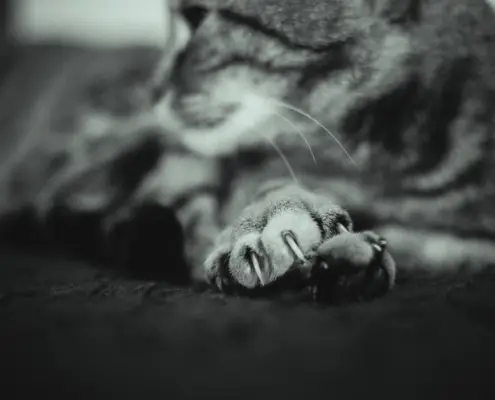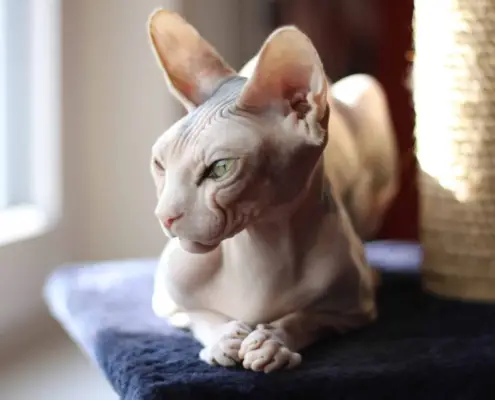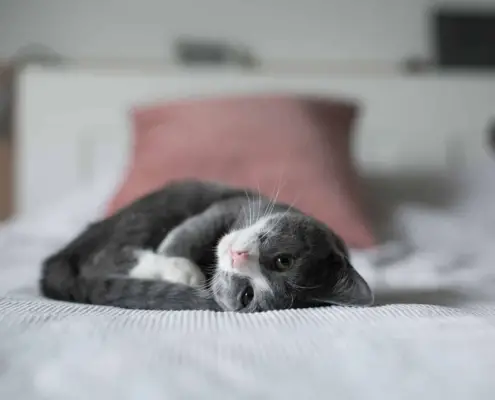
Cats have always been known for their curious nature and ability to entertain themselves with various activities. However, one of the most fascinating and surprising behaviors of cats is their interest in watching television. Many cat owners have experienced their furry friends getting captivated by the moving images on the screen, often sitting for hours in front of the TV. But why do cats watch TV? In this article, we will delve into the science behind this peculiar behavior and uncover the reasons behind their fascination with screens.
The science behind cats watching TV
Understanding a cat’s visual system
To comprehend why cats are drawn to television screens, it is crucial to understand their unique visual system. Cats have a highly developed sense of sight, designed for hunting and capturing prey. They possess a keen ability to perceive motion and detect subtle movements in their environment. This evolutionary adaptation allows them to spot potential threats or opportunities for food. When cats observe images on a screen, their visual system perceives the moving objects as potential prey, triggering their instinctual response.
The role of movement and sound in captivating cats
The combination of movement and sound on the television screen plays a significant role in capturing a cat’s attention. Cats are naturally drawn to objects in motion, as it mimics the behavior of their prey. When they see a bird flapping its wings or a mouse scurrying across the screen, their hunting instincts are stimulated. Additionally, the accompanying sounds further enhance the immersive experience for cats, making it more engaging and realistic.
Exploring the types of content that cats prefer
Not all television content is equally appealing to cats. Research suggests that cats are particularly attracted to programs featuring fast-paced movements, such as nature documentaries showcasing birds or small animals in action. The combination of rapid movements and vivid colors is more likely to captivate their attention. Additionally, some cats might show a preference for certain types of sounds, such as chirping or squeaking, which resemble the sounds produced by their potential prey.
The benefits of cats watching TV
Cognitive stimulation and mental exercise
Watching TV can provide cats with cognitive stimulation and mental exercise. As they observe the movements on the screen, their brains are actively processing the visual information, enhancing their cognitive abilities. This mental exercise can be particularly beneficial for indoor cats who may have limited opportunities for exploration and play.
Reduction of stress and anxiety
For cats that experience stress or anxiety, watching TV can serve as a form of relaxation and distraction. The captivating images and sounds can redirect their focus from potential stressors in their environment, providing them with a soothing and calming experience.
Bonding with their human companions
Watching TV together can also strengthen the bond between cats and their human companions. Sharing a common activity can create a sense of companionship and mutual enjoyment. It allows cat owners to spend quality time with their pets, engaging in a shared interest and strengthening their relationship.
Common misconceptions about cats and screen time
There are several misconceptions surrounding cats and screen time that need to be addressed. Firstly, it is important to note that cats watching TV is not a sign of boredom or neglect. Cats are naturally curious creatures, and their interest in screens should be seen as a form of enrichment rather than a reflection of their well-being. Additionally, it is essential to understand that cats should be supervised while watching TV to ensure their safety and prevent any potential damage to the screen.
Tips for creating a cat-friendly TV experience
To create a cat-friendly TV experience, consider the following tips:
- Position the TV at an appropriate height for your cat to comfortably observe the screen.
- Ensure that the area around the TV is safe and free from any hazards or objects that could harm your cat.
- Experiment with different types of content to understand what captures your cat’s attention the most.
- Provide interactive toys or treats during TV time to create a positive association with the experience.
- Gradually increase the duration of TV sessions to prevent over-stimulation or fatigue.
Fun anecdotes and stories of cats watching TV
Cat owners around the world have shared numerous amusing anecdotes and stories about their cats’ TV-watching adventures. From mesmerized gazes to playful attempts to catch the moving images, these tales highlight the unique entertainment value that cats find in screens. One particularly remarkable story involves a cat who learned to recognize specific commercials and would come running whenever they aired, showcasing their remarkable ability to distinguish between different visual stimuli.
Embracing the unique entertainment of cats
In conclusion, the science behind why cats watch TV stems from their innate hunting instincts and their ability to perceive motion and detect subtle movements. Watching television can provide cats with cognitive stimulation, relaxation, and an opportunity for bonding with their human companions. By understanding and embracing this unique behavior, cat owners can create a cat-friendly TV experience that enriches their pet’s life. So, the next time you catch your feline friend intently staring at the screen, remember that they are simply indulging in their natural instincts and enjoying their own form of entertainment.
If you enjoyed my article, I would appreciate you sharing it with your network.

Sima Ndlebe
Sima writes for CatBuzz. He is interested in Cats, Health and Fitness, and Entrepreneurship.
Published: 31 October 2023



